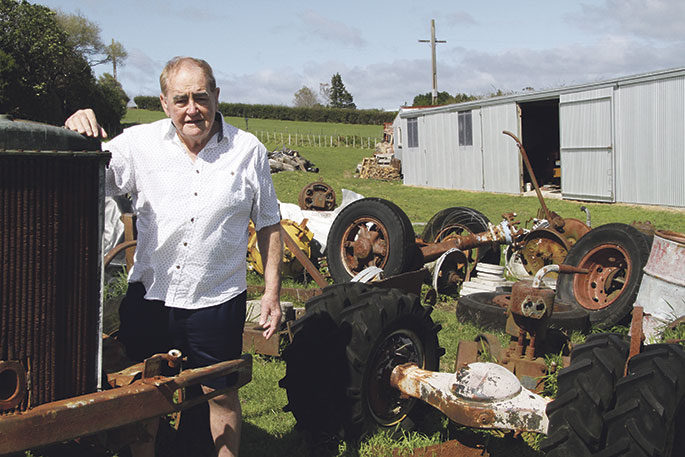Without flourish or flavor – a book simply titled ‘Oropi – the 100 years following confiscation of the land'.
The title belies the richness and the treats contained in this 355-page chronology of the evolution of a Tauranga suburb – a book for people to see where they came from so they can appreciate the way forward. A textbook brought to life by colourful characters and events and bound together by a myriad of facts.
'It's amazing how you develop an attachment to a place and its people as you research,” says retired National Bank accountant cum hobbyist author Robert Craig Scott. Spreadsheets may be soulless but not the lives and times of the characters Robert has encountered sifting around Oropi.
'When you look into the old people you feel you know them; you feel as if you know them personally.”
Like Cecil Kensington, one of Oropi's original settlers. Now there was a man unlucky in love. 'He got married when he was 51,” says Robert. 'His wife was a widow with six kids; one being the original teacher at Oropi School. She stayed with Cecil for just 12 months before flitting off to Auckland.”
It didn't work out for Cecil. He was left alone in a cold bed and the school had no teacher. At least for a while.
That incident also led Robert Scott to rewrite a little bit of history. 'You find a lot of stuff isn't correct. The history books on the school say Miss Leach was the first teacher there which is quite wrong. Cecil's step-daughter was the first teacher.” Until her mother's love interests changed.
Robert Scott and his wife may live 25km across town in Pillans Point but there's an historical attachment to Oropi. One of Robert's great-great-grandparents, a Steven Earl, was in the First Waikato Militia – a group of civilians used to support regular army in an emergency - the emergency in this case being the problems between land settlers and Maori in Oropi.
The militia was recruited by the government to settle on confiscated land and protect early settlers. At the end of their contracts they were given some of the land.
And Robert's wife's ancestors were the Fieldings who were one of the first families to move into lower Oropi.
‘Oropi – the 100 years following confiscation of the land' covers the settlement and the settlers of the area along Oropi Road between the Waiorohi Stream and the Waimapu River from ‘The Landing' at the bottom of Oropi Road to the boundary between the Tauranga and Rotorua counties.
It's crammed with fascinating information and stories, like the mind of its author whose life has been facts and figures, information and analysis. He's simply turned those skills to his hobby – researching and writing.
'Definitely a crossover,” says Robert. 'But it's not just a matter of genealogy; that's my uncle or that's my aunty. It's about pulling hundreds and hundreds of facts into some semblance of order and understanding.”
And no, he doesn't expect the reporter to buy a copy. 'It's for people who lived in the area, or had ancestors in the area. One person has ordered 10 of the 100 copy run for his grandchildren.” But it's still fascinating to fish through this repository of historic photographs; the families, the homesteads, the Fencible cottages, the haystacks, the tractors, the soldiers and sisters, strawberry fields, reunions and wedding snaps.
And it all starts about 1864 at the time of land confiscations. Oropi, apparently a translation of the word Europe, was being divided into 50-acre blocks. 'The soldiers overseeing the surveying were having issues with Maori who were understandably aggrieved.”
Words like ‘rebels' were used. However one man's rebel is another man's fighter for justice and fairness.
In 1895 a John Allen was gifted more than 5000 acres at Oropi by his father, possibly as a 21st birthday present. It became known as the Belmont Block. As Robert's book would have it, it all turned bad for John. His wife Alice refused to trade her flash Morrinsville mansion for a new homestead and a new life in Oropi. Alice, apparently, was just not a country person. John would die from injuries received at Ypres in WWI and Alice pottered off to live in Remuera. The homestead is still in Oropi, right behind the school. It's derelict and used to store hay. A sad end to a sad story.
If you would like to scratch even deeper into the evolution of Oropi, email Robert at: bobmargscott@gmail.com

